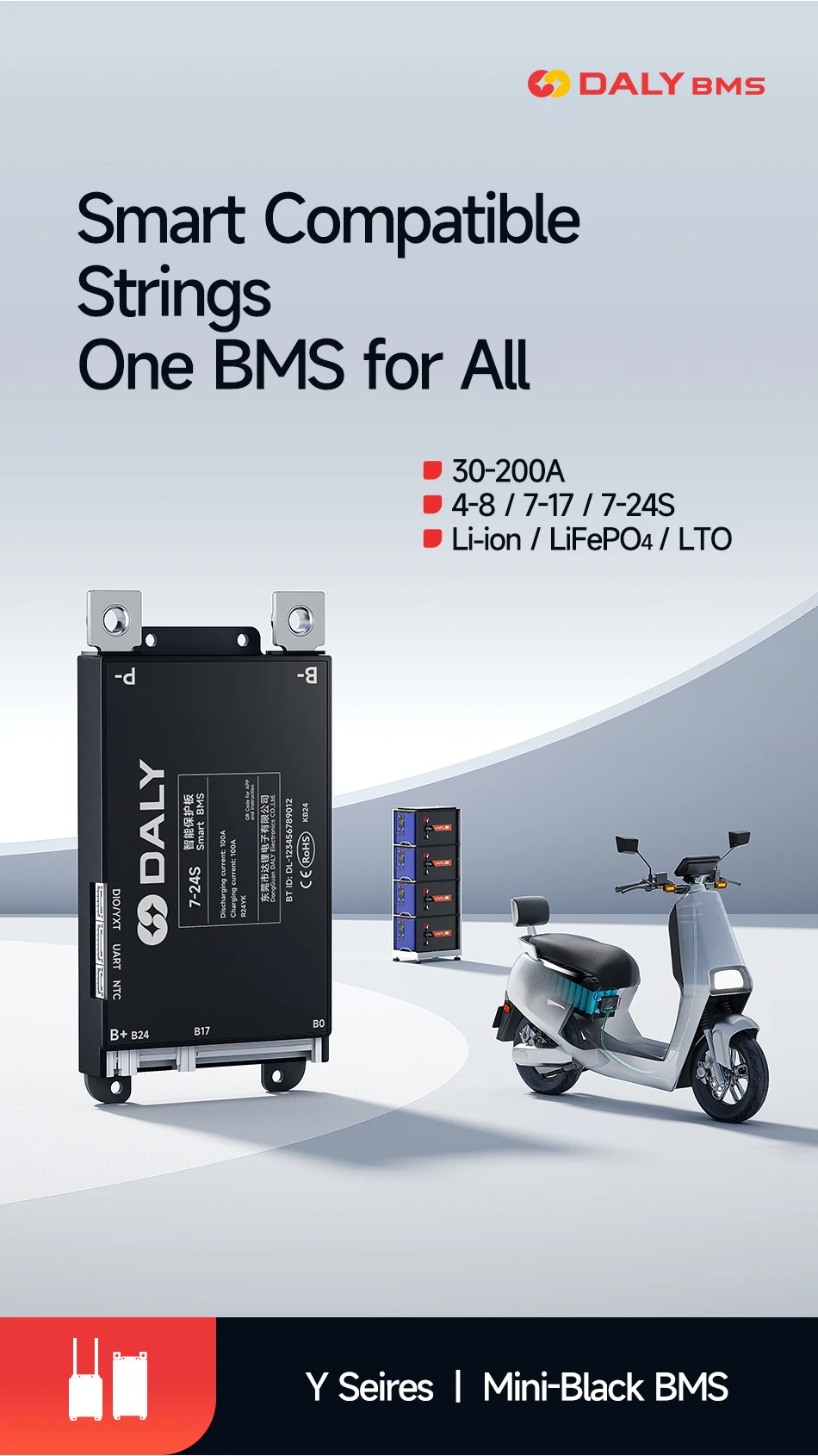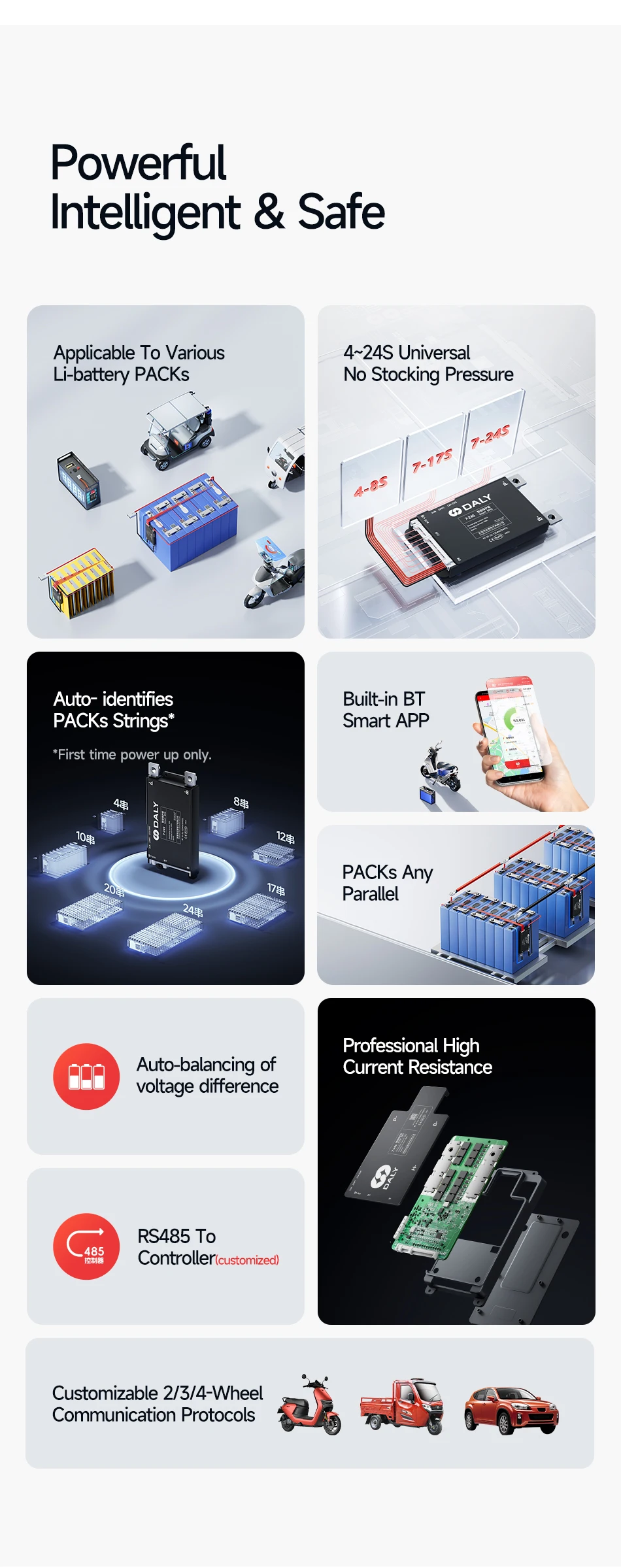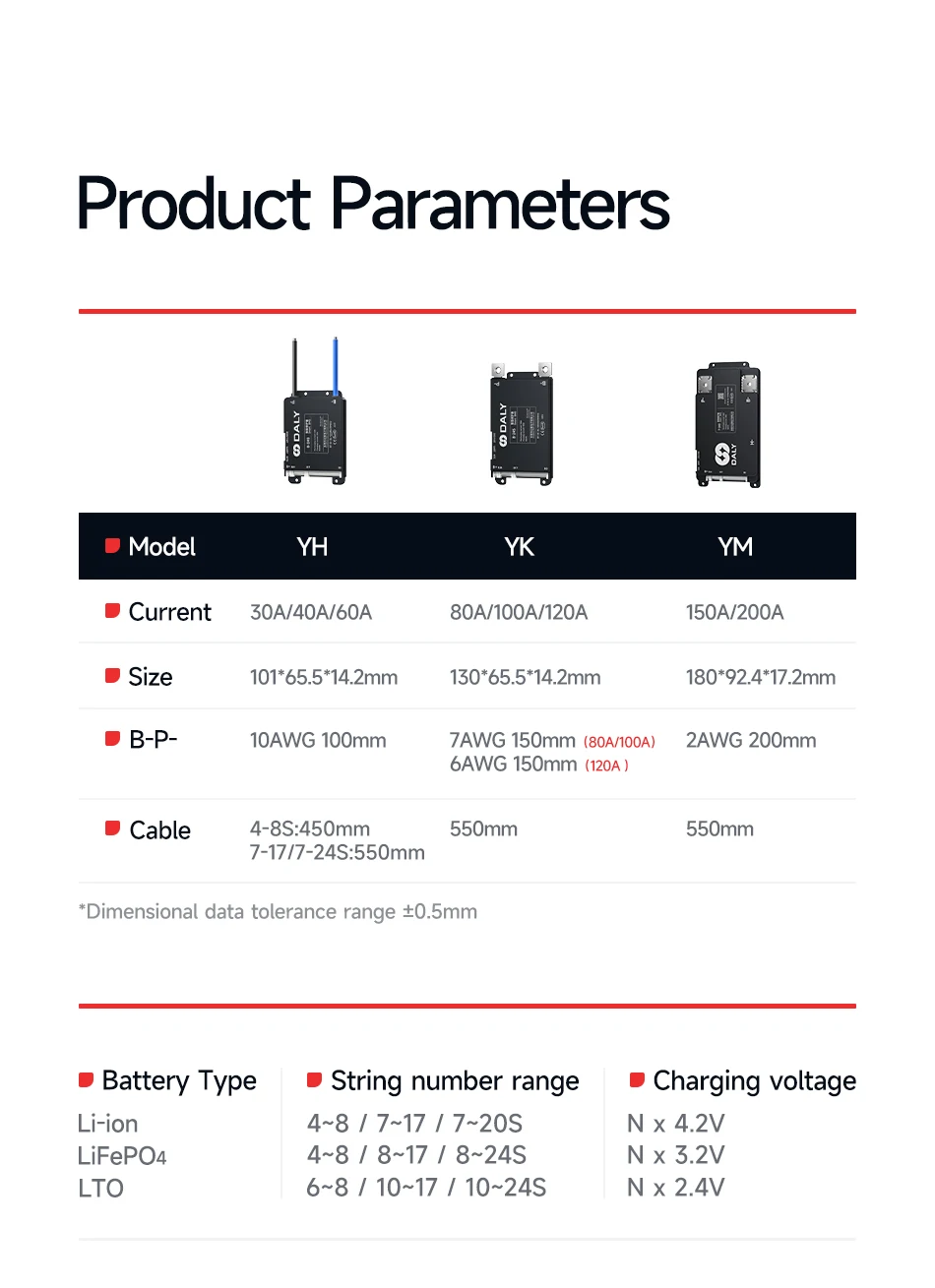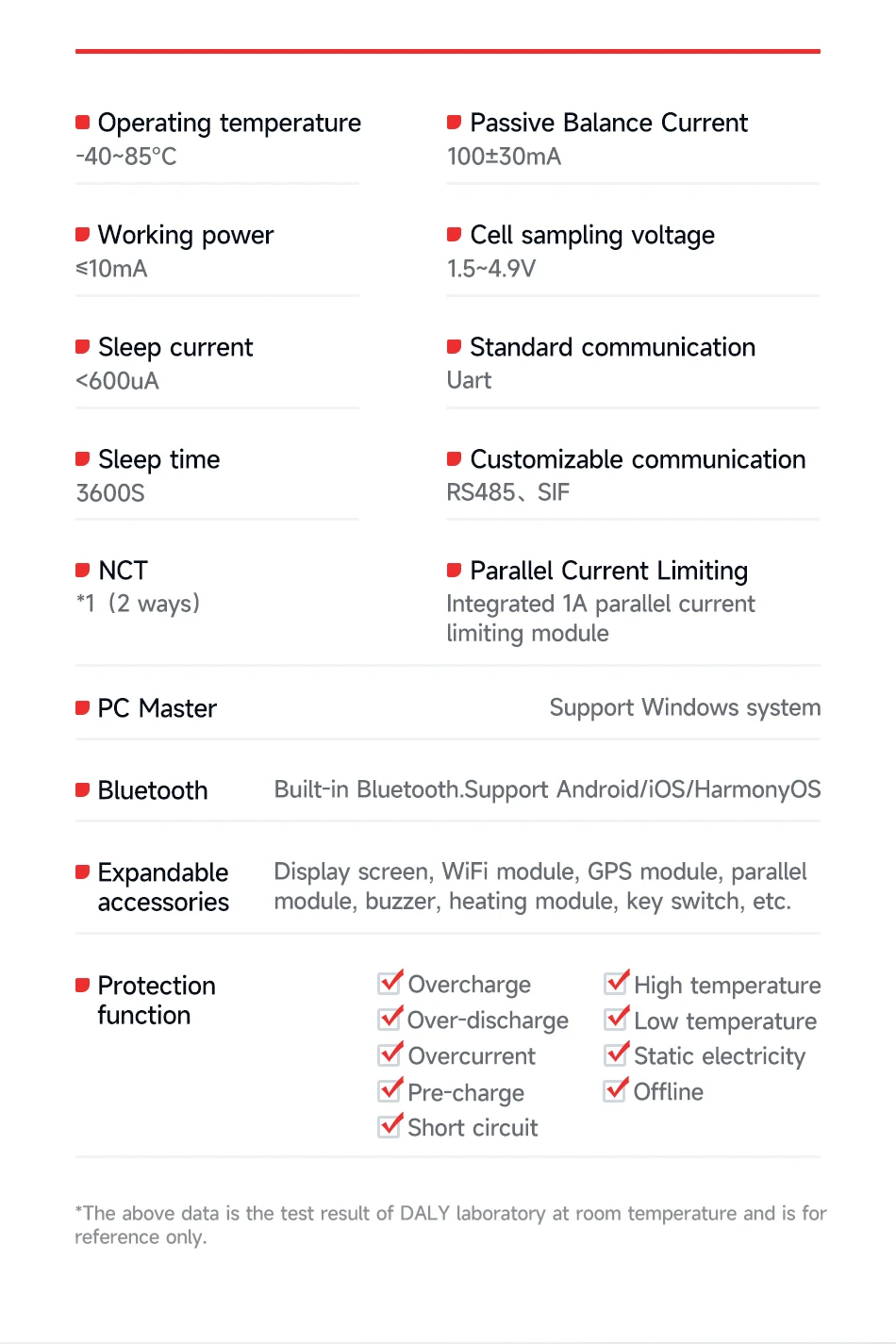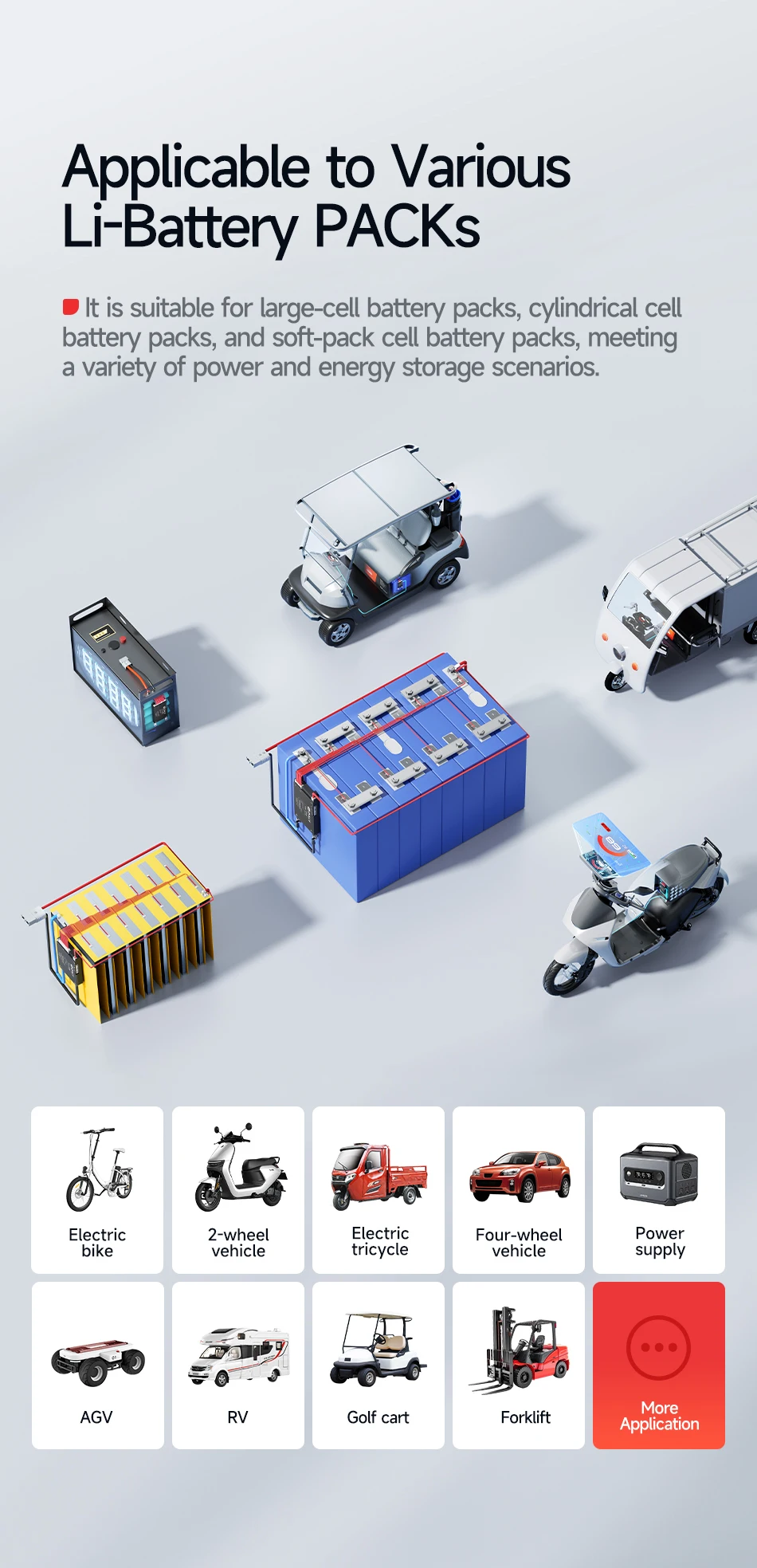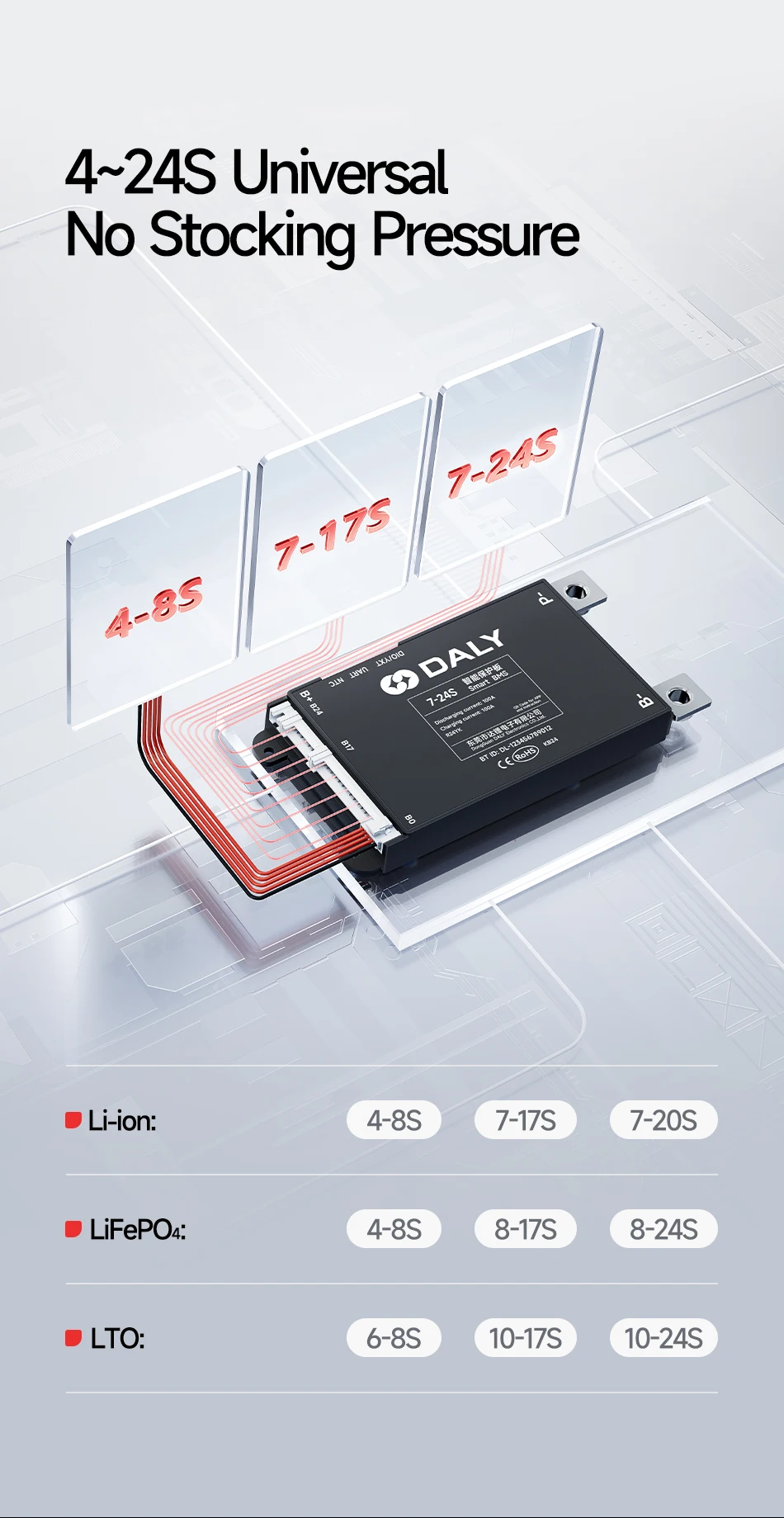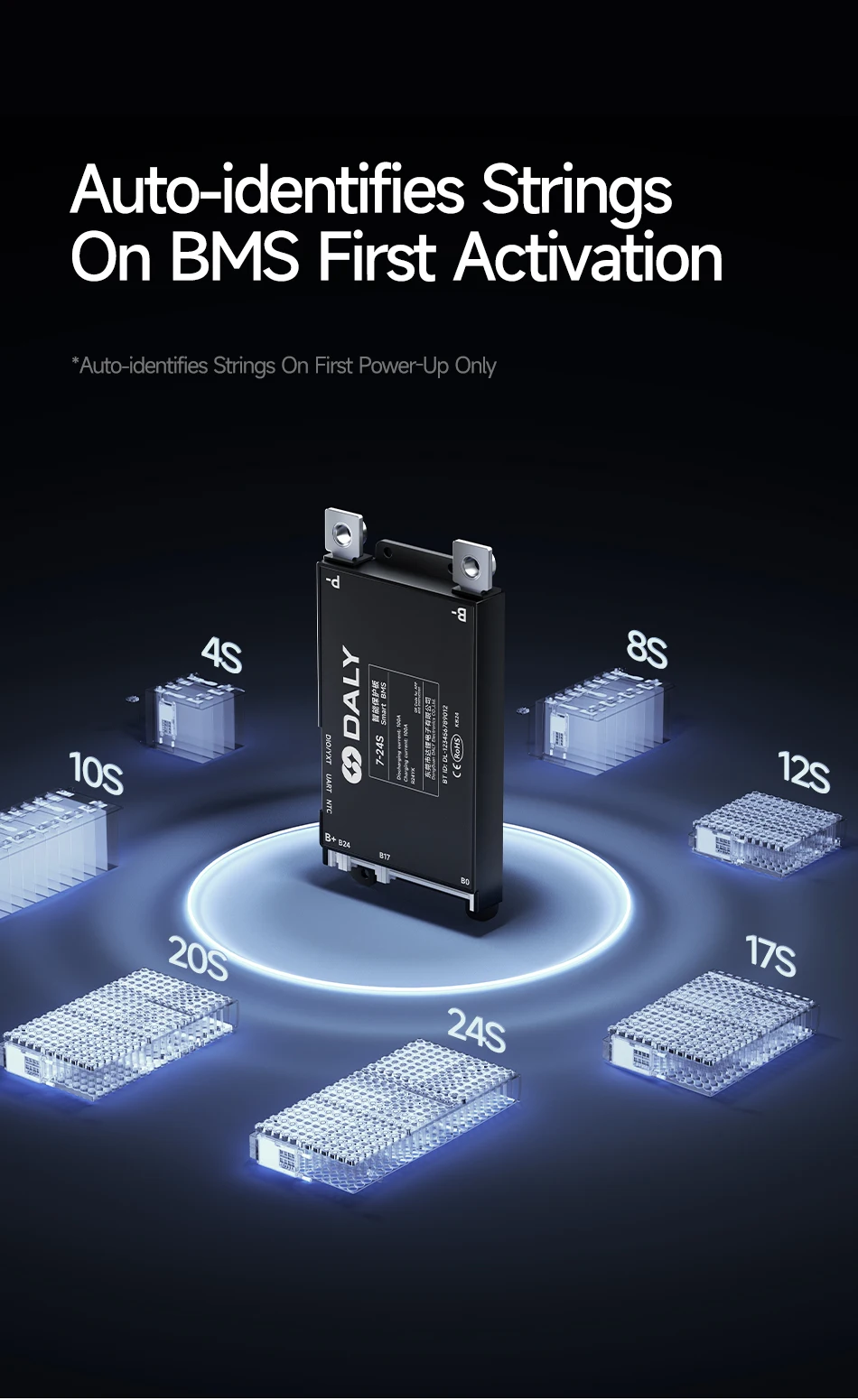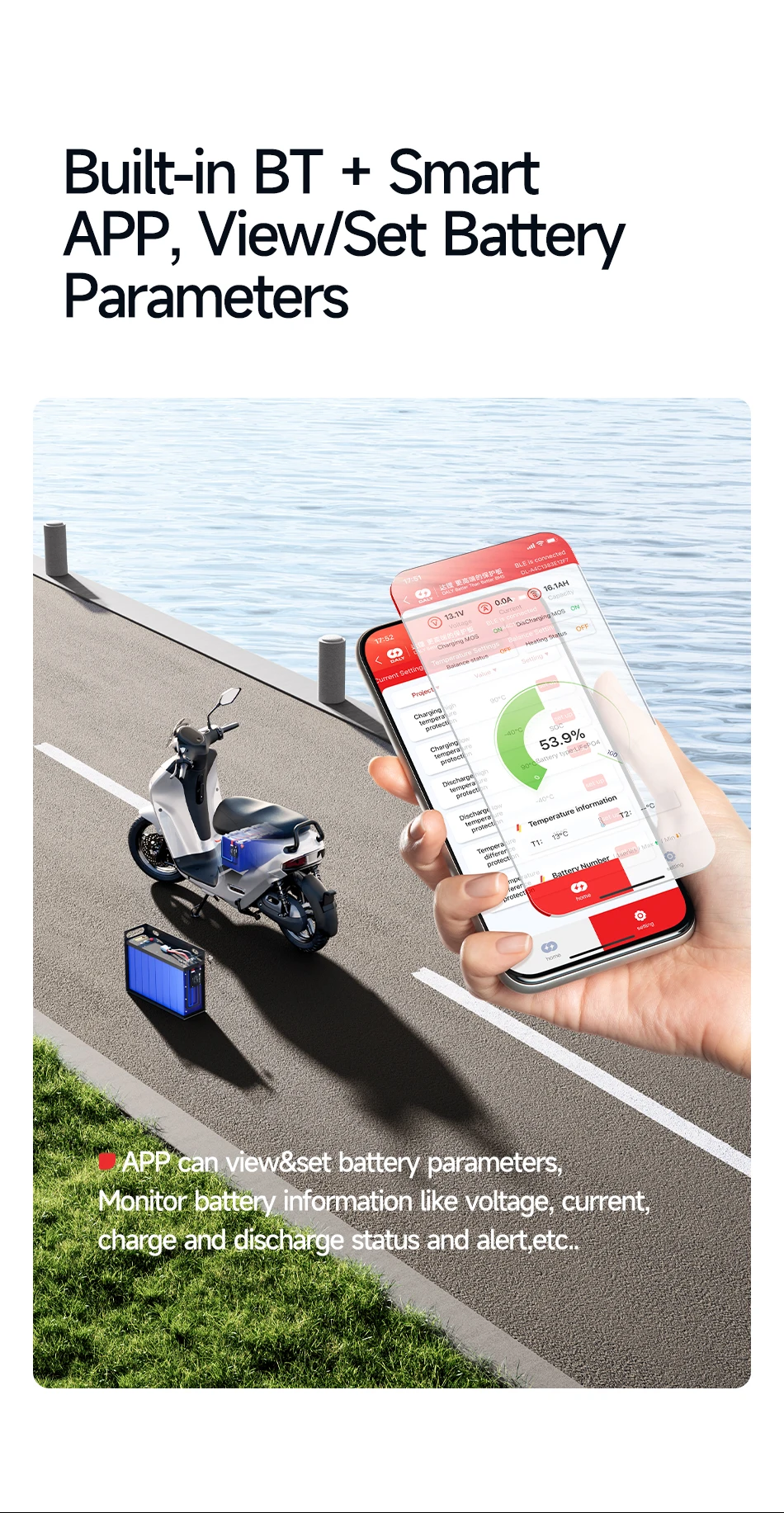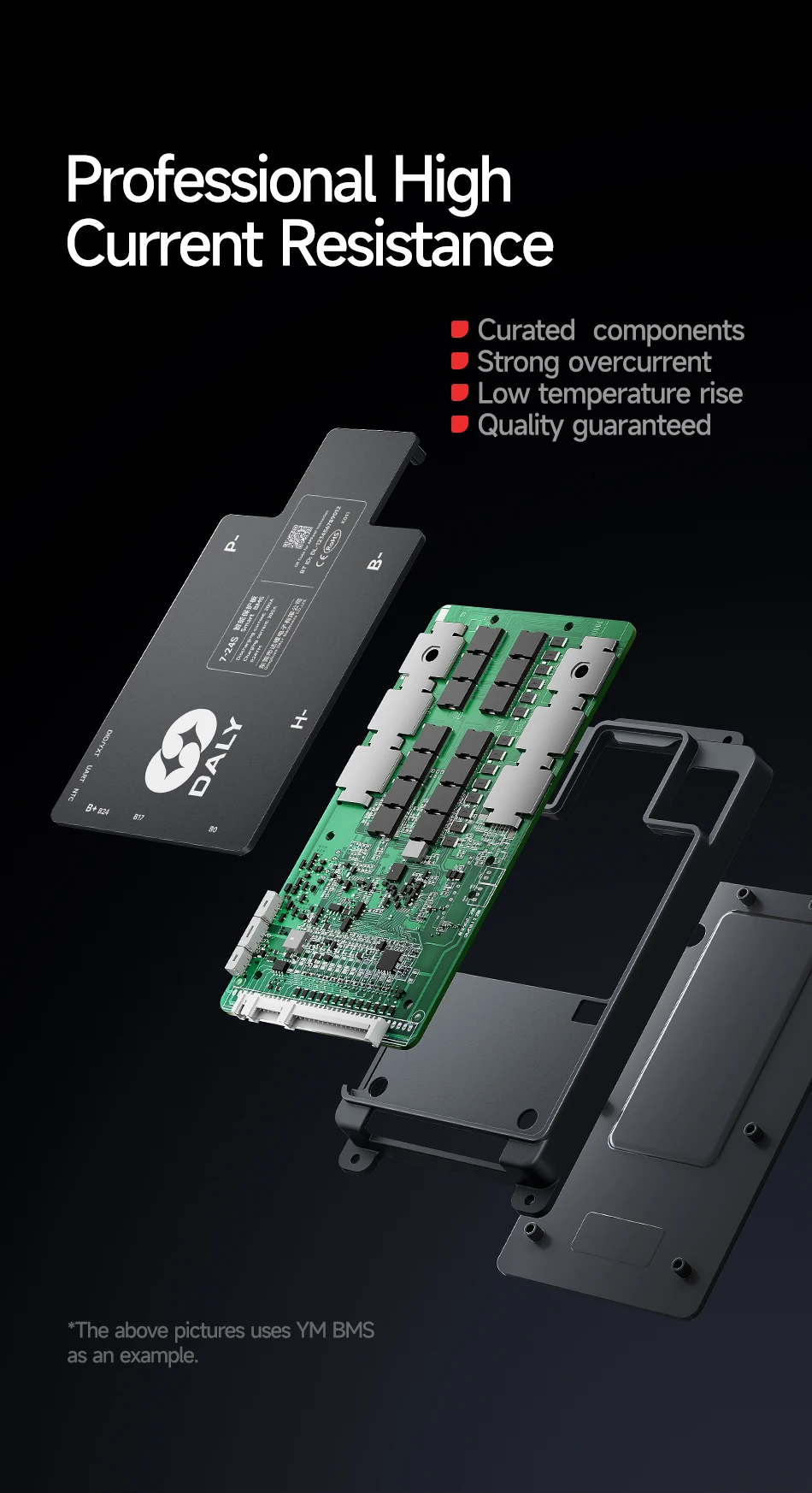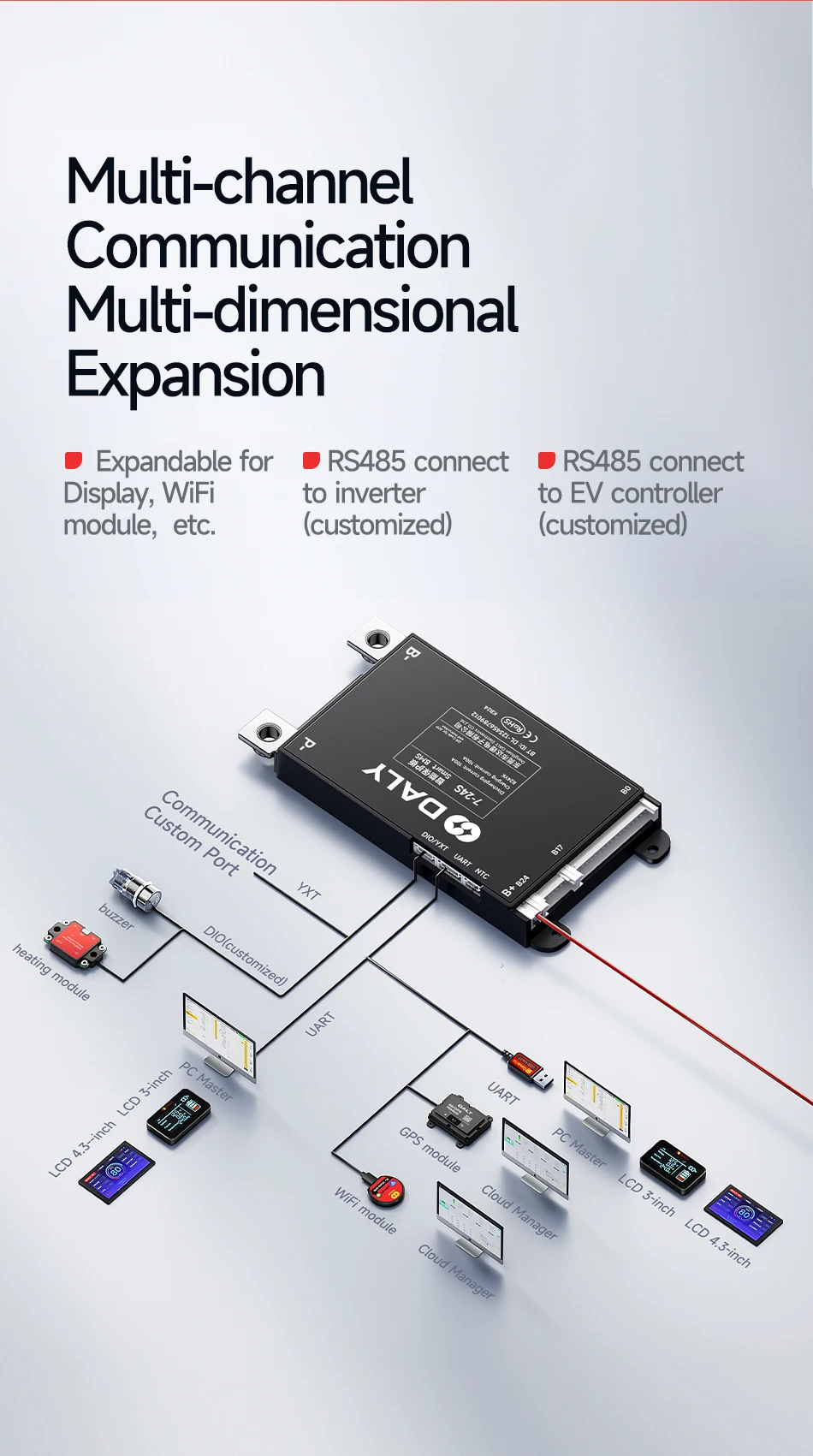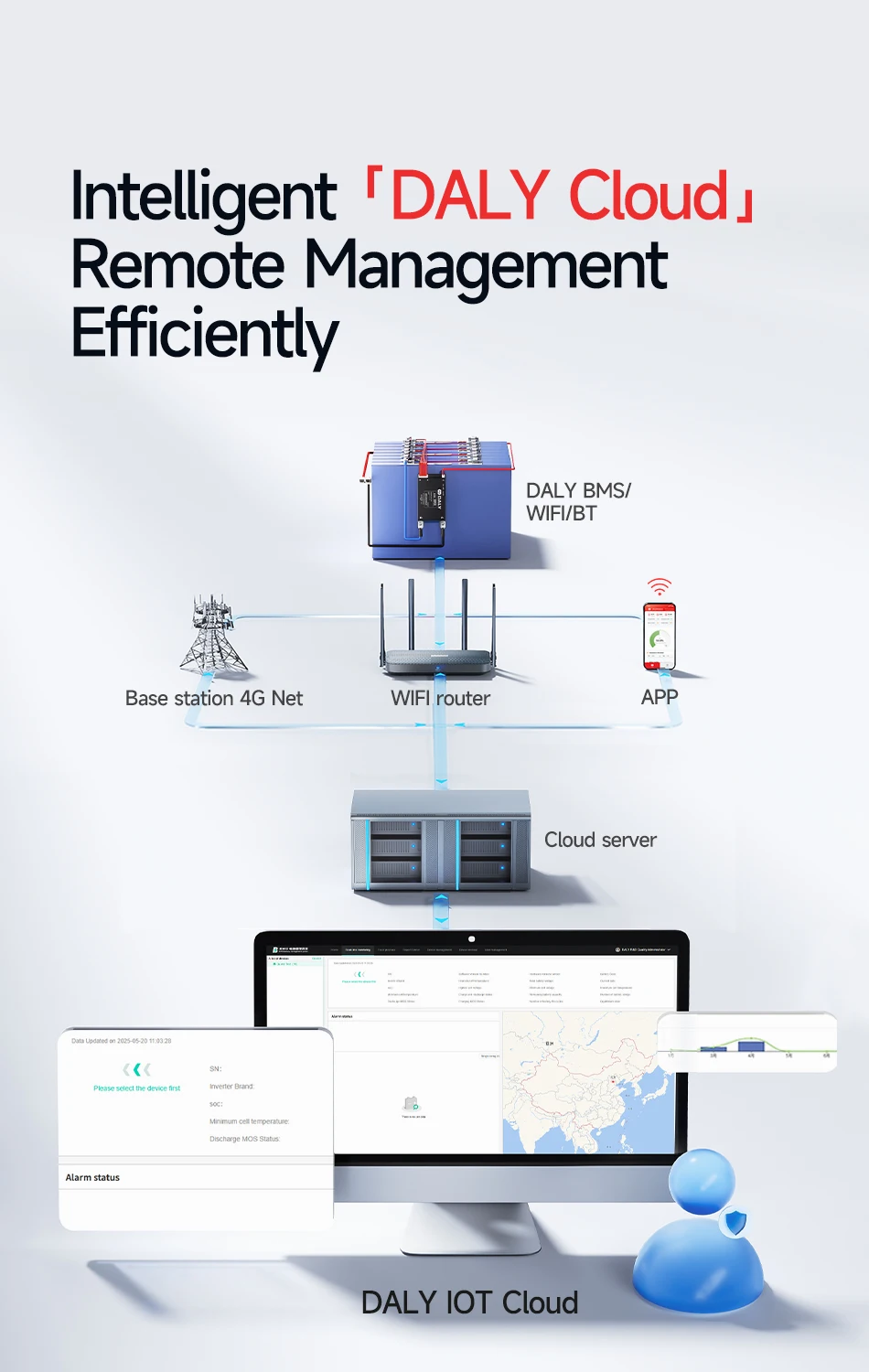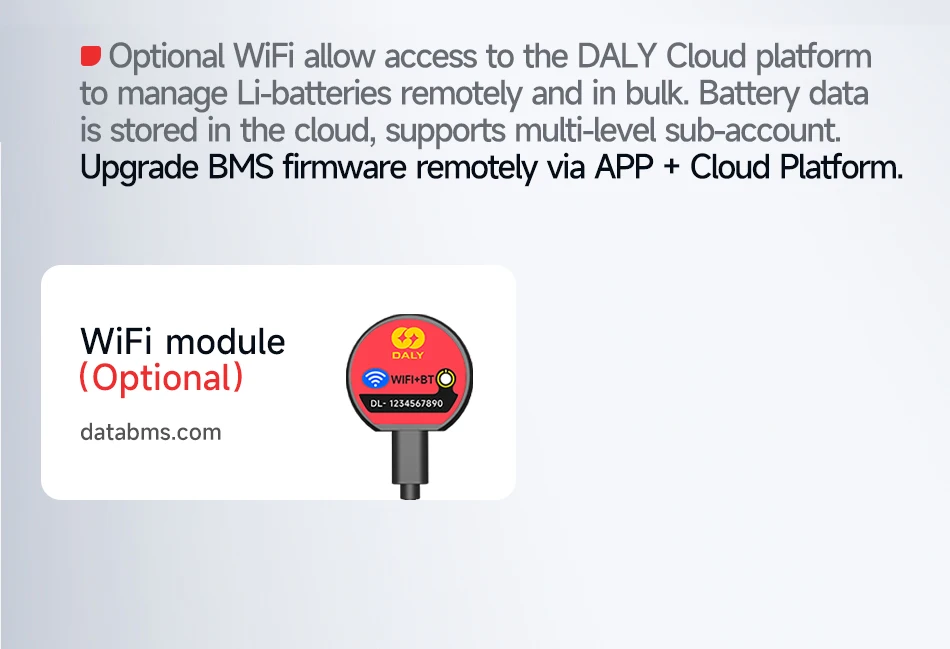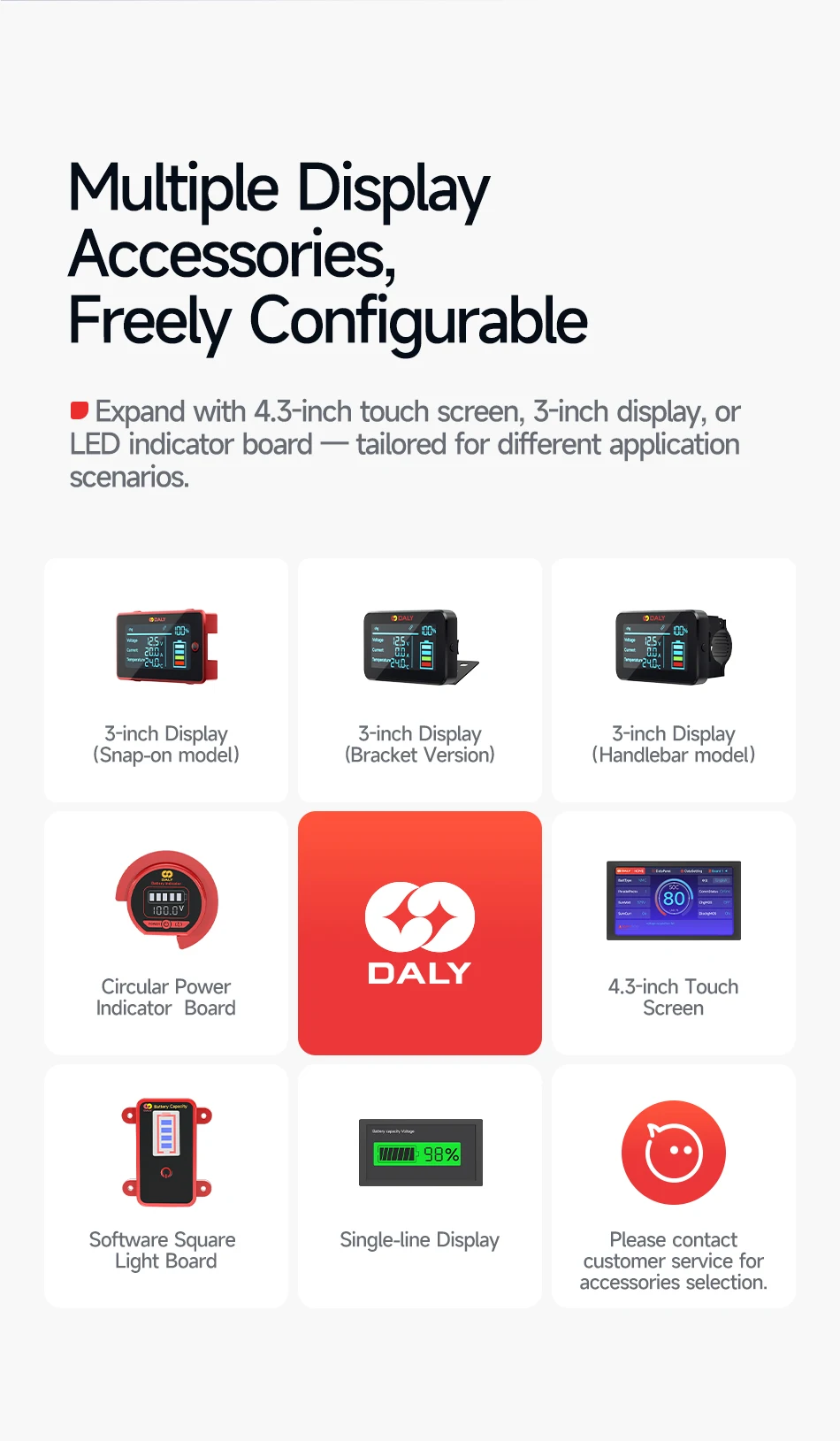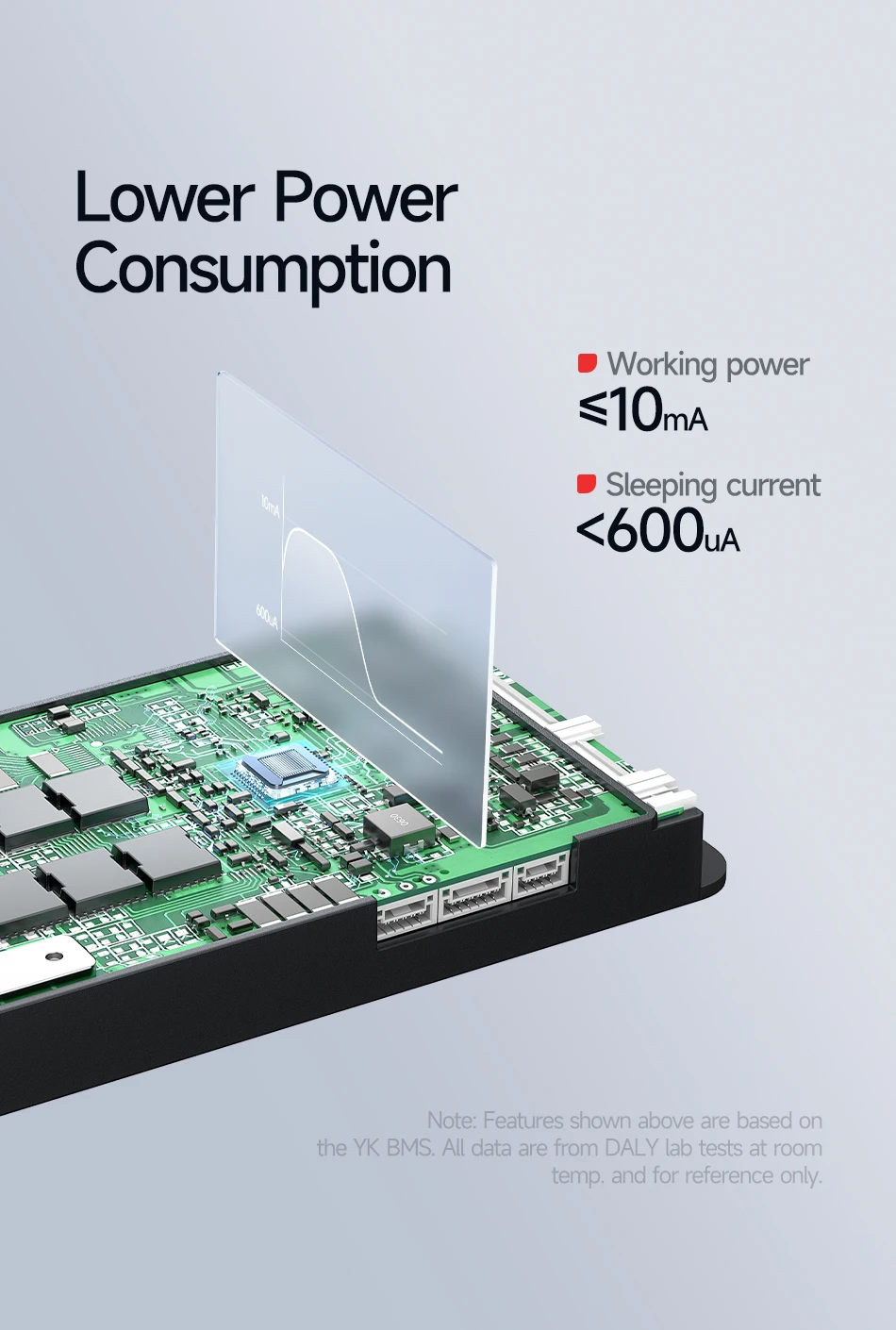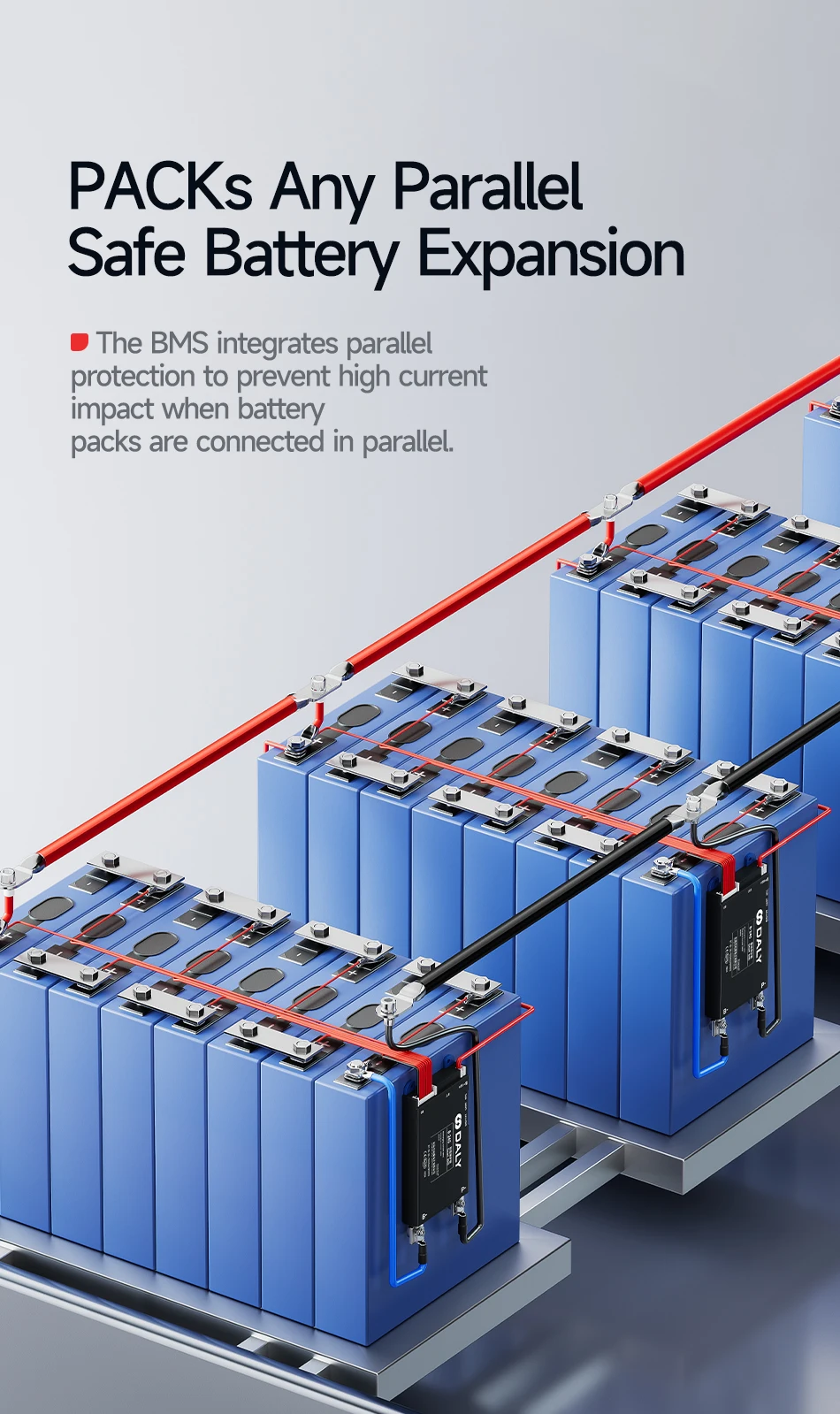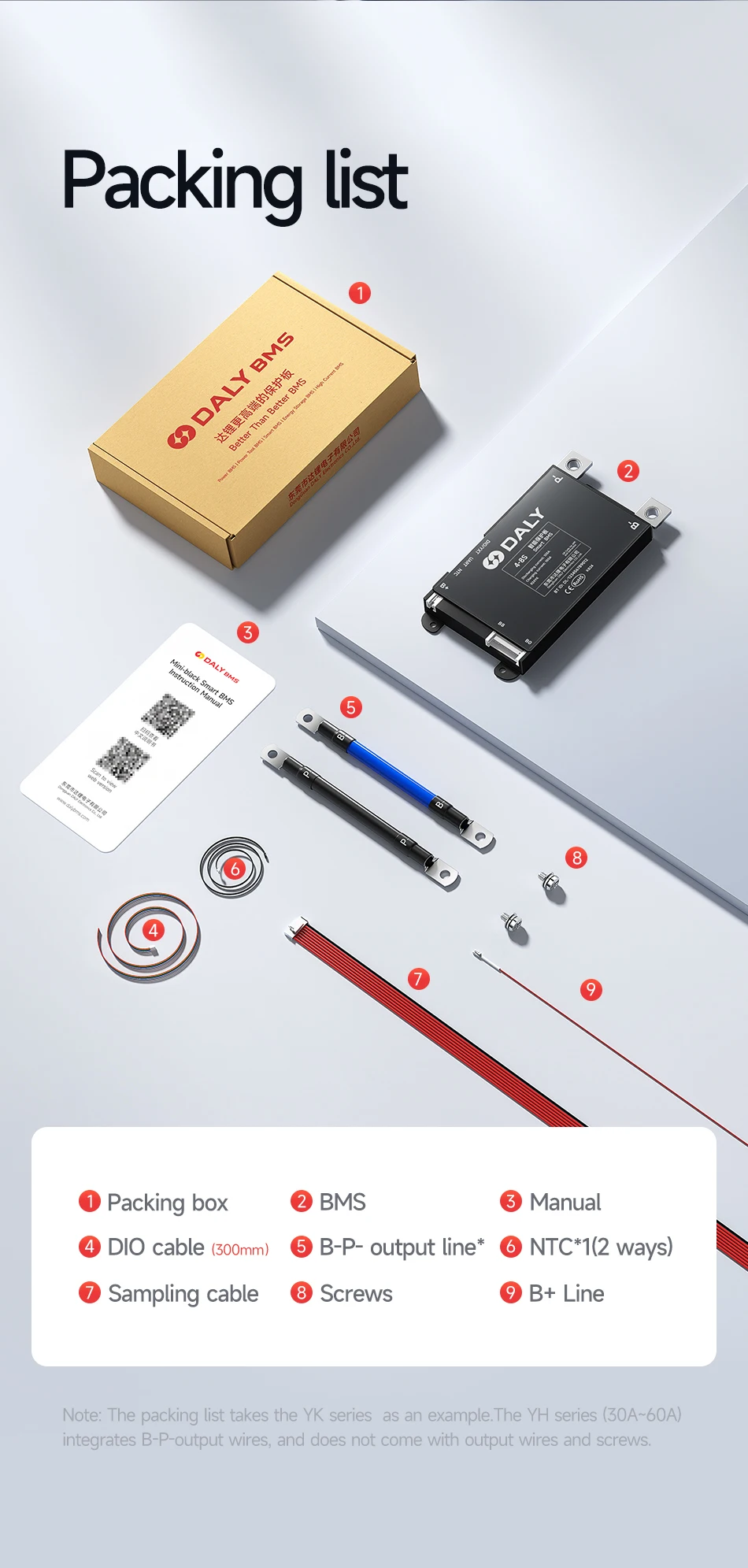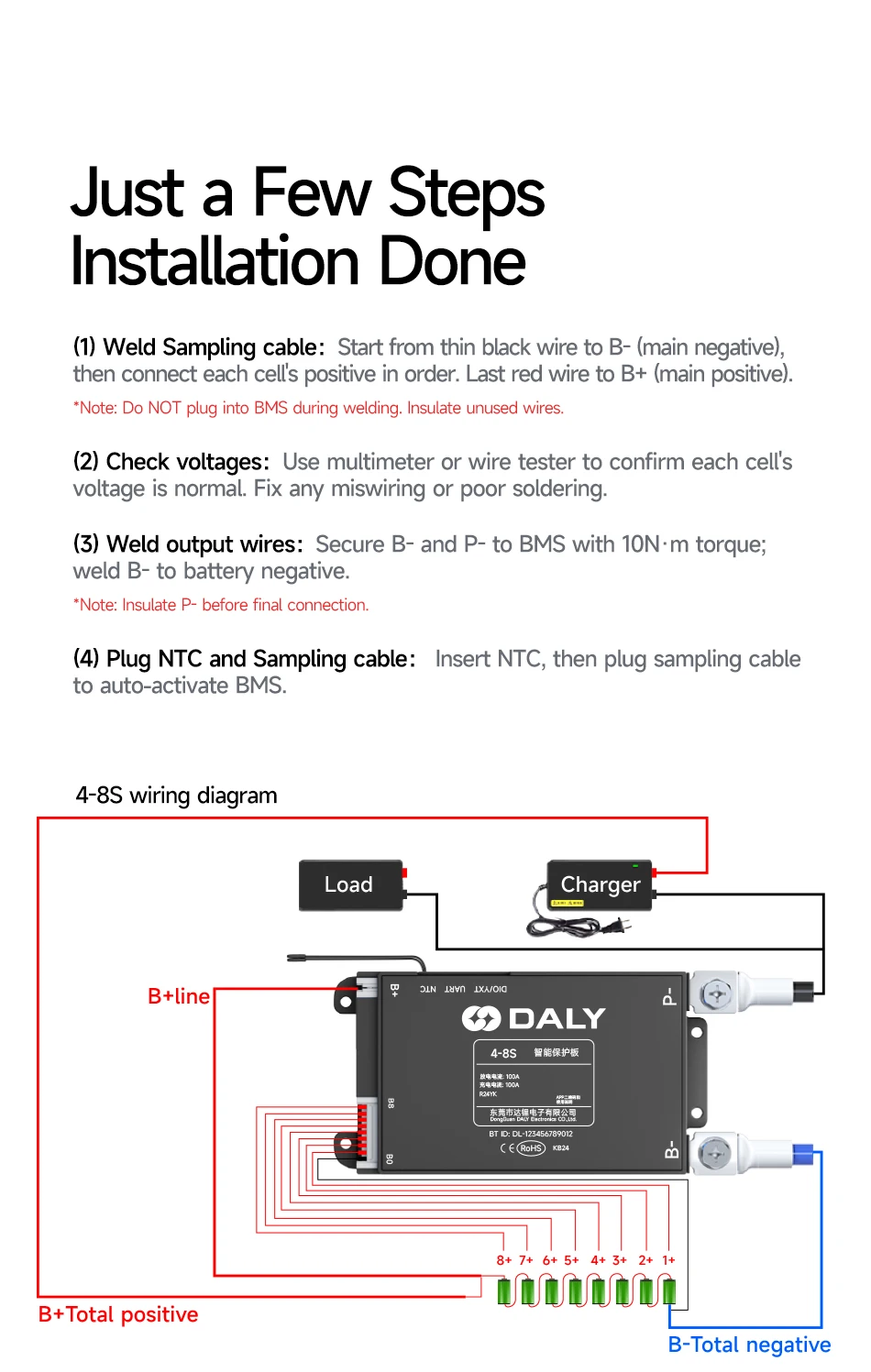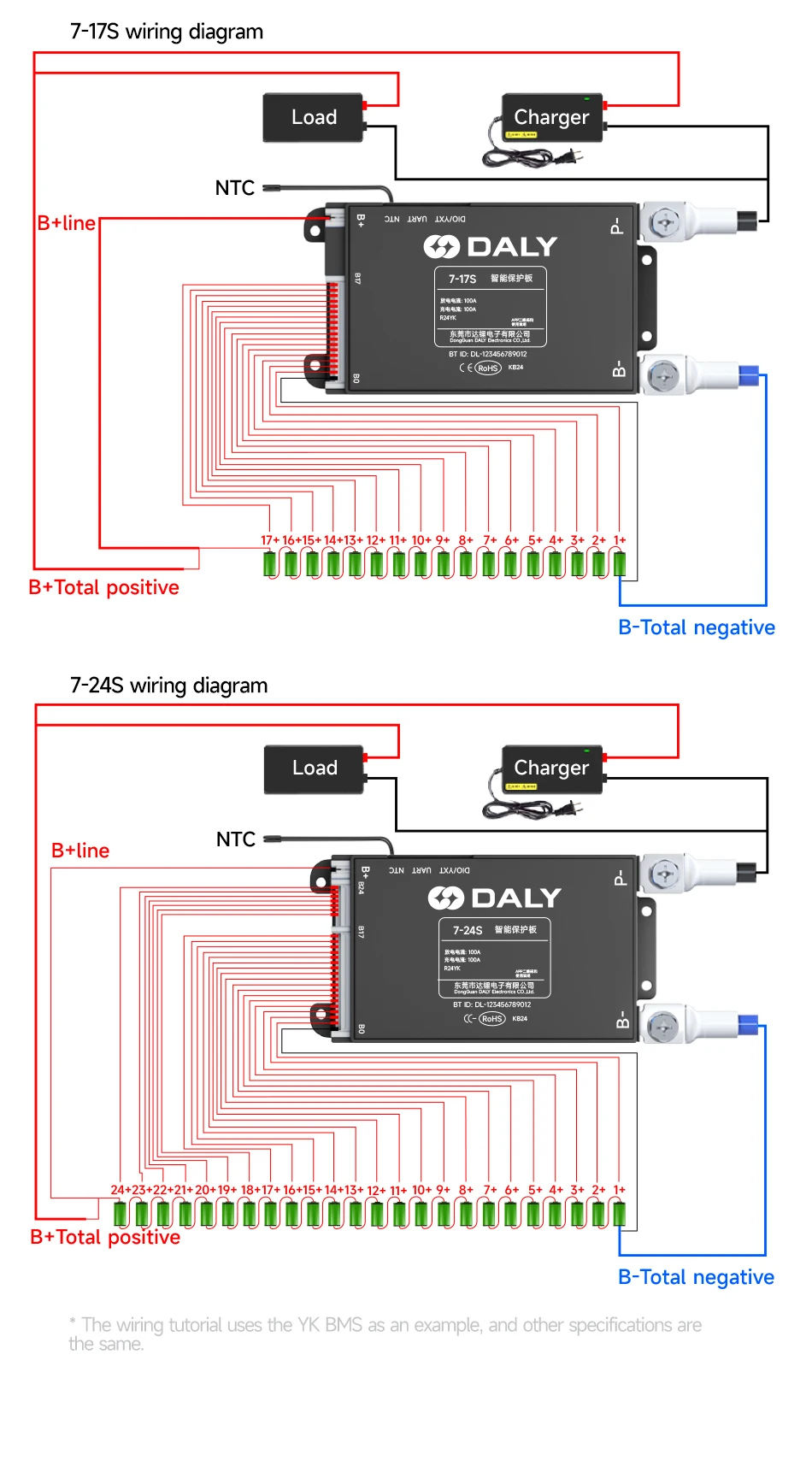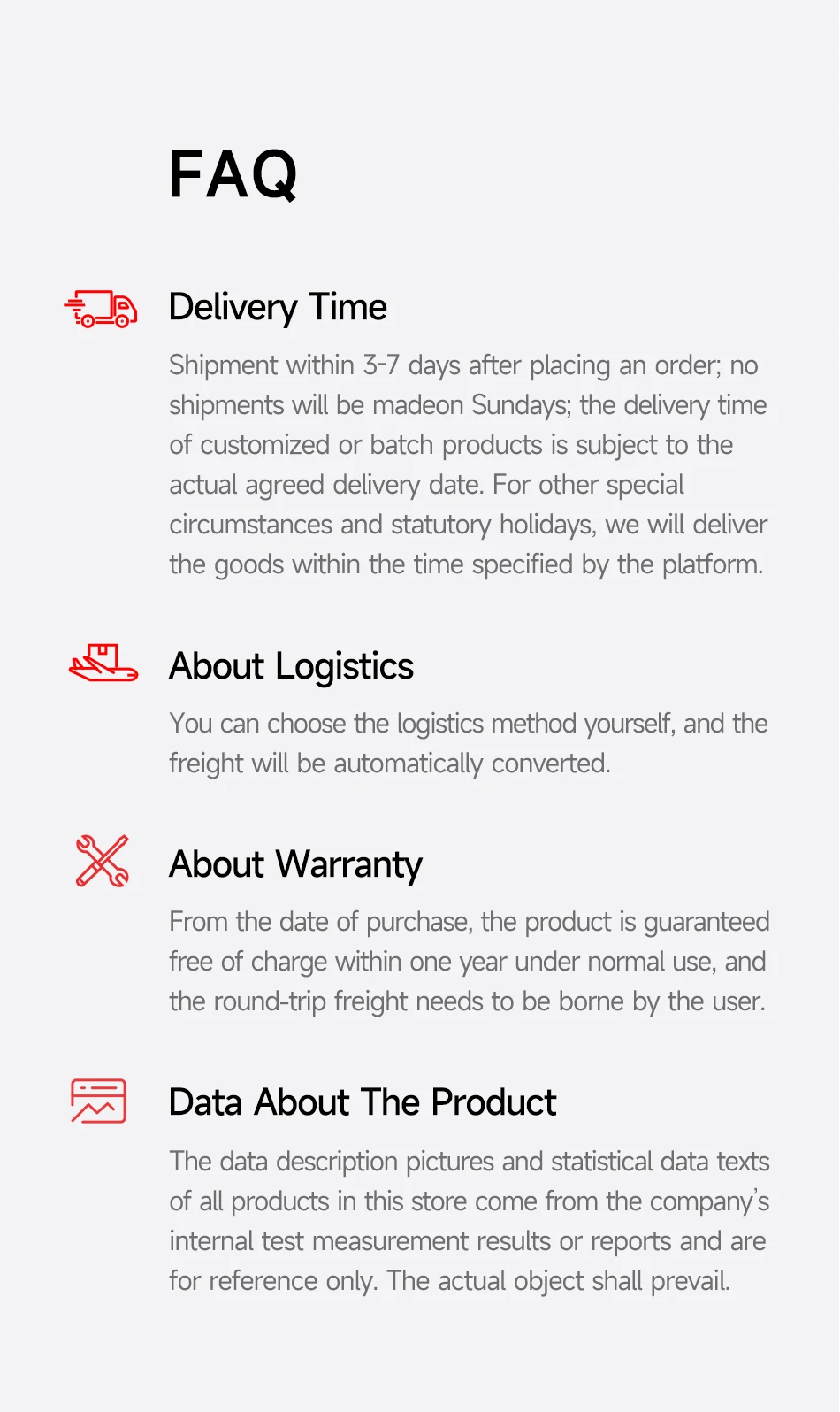DALY Smart BMS 4S 5S 6S 7S 8S 17S 20S 24S 12V 24V 48V Lifepo4 BMS 30A 40A 60A 80A 100A 120A Li-Ion LTO 3.7V 3.2V Battery BMS
|
Model |
|||||||||||
|
DALY SMART BMS: Y-series 30-60A(YH) 80-120A(YK) |
|||||||||||
|
Optional strings range:4-8S 7-17S 7-24S |
|||||||||||
|
Optional current range:30A 40A 60A 80A 100A 120A |
|||||||||||
|
|
|||||||||||
|
|
|||||||||||
|
Usage Scenario |
|||||||||||
|
Used in RV energy storage,photovoltaic energy storage,home and outdoor energy storage,electric vehicles,tricycles,forklifts,tourist vehicles,golf cart etc. |
|||||||||||
|
|
|||||||||||
|
|
|||||||||||
|
Support Customization |
|||||||||||
|
Bulk orders can customize functions,parameters,logo. |
|||||||||||
|
Support OEM |
|||||||||||
|
Standard BMS, smart BMS all can be customized |
|||||||||||
|
For details, please contact customer service |
|||||||||||
|
|
|||||||||||
|
How to choose the right BMS |
|||||||||||
|
Attention |
Illustration |
Mismatched BMS Consequences |
|||||||||
|
Lithium |
BMS type and lithium battery type must be in |
1、BMS damaged,even bms and battery burn out |
|||||||||
|
battery type |
one-to-one correspondence(Li-ion/Lifepo4) |
2、The battery cannot be fully charged and discharged |
|||||||||
|
|
|
|
|||||||||
|
Number of battery pack |
BMS strings and battery strings must be in |
BMS and battery burn out |
|||||||||
|
strings |
one-to-one correspondence |
||||||||||
|
|
|
||||||||||
|
Selection method |
load maximum power÷(string number of battery×overdischarge voltage)×coefficient |
||||||||||
|
in experience |
Depending on the battery usage scenario, the coefficient value is also different |
||||||||||
|
|
Please consult customer service for specific values |
||||||||||
|
|
|||||||||||
|
Specialty |
|||||||||||
|
Bluetooth function:You can monitor battery data in real time by connecting to the APP |
|||||||||||
|
|
|||||||||||
|
Superiority |
|||||||||||
|
1、High-quality microelectronic components:precise and fast IC.Low resistance,high withstand voltage MOSFET. |
|||||||||||
|
2、Through the Bluetooth APP, the battery data is constantly monitored. |
|||||||||||
|
3、A variety of accessories,can easily control the data and modify the parameters. |
|||||||||||
|
4、A variety of communication modes,data monitoring,alarm backtracking,data reading, and upgrade can be easily realized |
|||||||||||
|
5、Thermal silica,accelerate the heat dissipation.Ensure the smooth operation of the battery. |
|||||||||||
|
6、Preset interface,buckle cable,make the connection more convenient. |
|||||||||||
|
|
|||||||||||
|
Basic Functions |
|||||||||||
|
Over-charging protection |
Over-discharging protection |
||||||||||
|
Over-current protection |
Temperature protection |
||||||||||
|
Disconnect protection |
Short Circuit Protection |
||||||||||
|
Balance Function |
Short Circuit protection recover |
||||||||||
|
|
|||||||||||
|
Package Contains |
|||||||||||
|
BMS*1pcs |
Sampling cable*1pcs |
Temperature probe(NTC)*1pcs |
|||||||||
|
B+ cable *1pcs |
English manual *1pcs |
USB-Uart cable *1pcs |
|||||||||
|
|
|||||||||||
|
Optional accessories |
|||||||||||
|
UART to USB cable |
Battery Capacity Indicator |
Touch screen LCD |
|||||||||
|
|
|||||||||||
|
Customization |
|||||||||||
|
soft switch |
RS485 and CAN Communication |
||||||||||
|
key switch |
DO/I port for special needs |
||||||||||
|
Optional accessories, customized accessories must match the BMS model and be purchased at the same time. |
|||||||||||
|
please contact customer service for details |
|||||||||||
|
|
|
|
|
|
|
|
|
|
|
|
|
|
Balance cable connection |
|||||||||||
|
Find the total positive and total negative of the battery pack. |
||||||||||
|
Find B-/P- of BMS |
|||||||||||
|
Insert temperature probe (NTC) into the BMS |
|||||||||||
|
Note: When soldering, the balance cable cannot be inserted into the BMS |
||||||||||
|
(1)Weld Sampling cables: Start from thin black wire to B- (total negative),then connect each cell's positive in order. Last red wire to B+ (total positive) |
|||||||||||
|
(2)Check voltages: Use multimeter or wire tester to confirm each cell'svoltage is normal. Fix any miswiring or poor soldering. |
|||||||||||
|
(3) Weld output wires: Secure B- and P- to BMS with 10N·m torque; weld B-to battery negative. |
|||||||||||
|
(4) Plug NTC and Sampling cable: Insert NTC, then plug sampling cable toauto-activate BMS. |
|||||||||||
|
|
|||||||||||
|
Measure whether the battery voltage(B+→B-)is consistent with the output voltage of the BMS(B+ P-). |
||||||||||
|
If the two voltage values are equal, it means that the BMS is working normally. |
|||||||||||
|
|
|||||||||||
|
|
|
|
|
|
|
|
|
|
|
|
|
|
Passive Equalization |
|||||||||||
|
3.4V |
||||||||||
|
≥20mV |
||||||||||
|
100±30mV |
||||||||||
|
|||||||||||
|
1.Reach the set balanced start voltage |
|||||||||||
|
2.The highest voltage reaches the set balanced start voltage difference. |
|||||||||||


